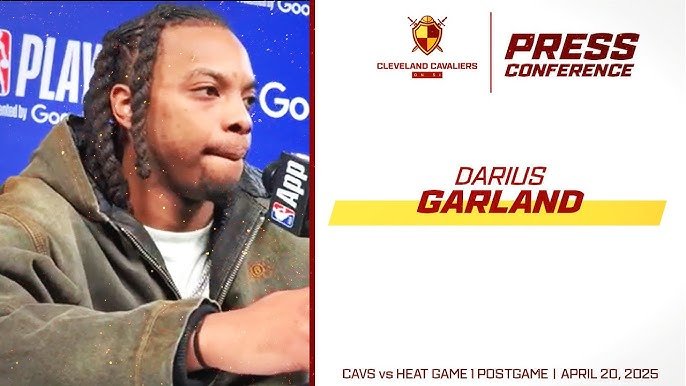Darius Garland, the talented point guard for the Cleveland Cavaliers, found himself amid a contentious situation after being sidelined for a crucial game this season. The decision, which was made by the Cavaliers’ coaching staff, initially seemed like a tough blow for Garland, as it was a move he never expected to face. Despite his efforts and willingness to contribute, Garland was informed that he wouldn’t be playing, a decision that created tension and uncertainty both on and off the court.
Garland, who has been a cornerstone of the Cavs’ offense since entering the league, expressed his frustration when the news broke. For a player of his caliber, not being able to contribute in a crucial game was a challenge he hadn’t anticipated. He had worked tirelessly during the season to maintain his form and be ready for whatever the Cavaliers needed, but the unexpected decision left him disappointed and confused.
Initially, Garland resisted the idea of being sidelined. He was determined to prove his worth and felt that his presence on the court was crucial for his team’s success. As a player who has consistently been one of the leaders in Cleveland, Garland was naturally vocal about wanting to play and lead his team through difficult matchups. His frustration was evident, but it became clear that the coaching staff had a different vision in mind for the team’s strategy that day.
However, as the days passed and Garland spent more time reflecting on the decision, he started to see things from a different perspective. He recognized that the decision was not meant to undermine his abilities or leadership but rather part of a broader strategy aimed at the team’s long-term success. Garland began to understand that the coaching staff’s move wasn’t personal, but a calculated decision to protect his well-being and ensure he remained at his peak for the stretch run of the season.
The realization didn’t come easily, as Garland had to shift his mindset. A competitor at heart, he struggled with the idea of not being out there on the floor, especially when the Cavaliers were in the midst of a pivotal stretch. His teammates, however, quickly rallied around him, offering words of support and reminding him of the bigger picture. The bond within the locker room was strong, and the Cavaliers’ camaraderie allowed Garland to eventually accept the situation and refocus on his role as a leader.
As Garland spent time watching from the sidelines, he began to appreciate the significance of the decision. The Cavaliers had a chance to evaluate the game from a different angle, and Garland had the opportunity to view the team’s dynamics from a unique perspective. He found that stepping away, even momentarily, gave him fresh insights into the team’s offensive and defensive schemes, helping him understand where he could improve and how he could contribute more effectively moving forward.
By the time Garland returned to the court, he had transformed. He was not only physically prepared but mentally sharper. His time off had provided him with a renewed sense of clarity, and when he finally took to the court again, he was even more determined to make an impact. His comeback performance was impressive, and his on-court leadership was immediately felt by his teammates.
Despite the initial frustration, Garland’s growth during this time was undeniable. He embraced the process, and his willingness to adapt to the situation ultimately played a major role in the Cavaliers’ ability to thrive. His relationship with the coaching staff strengthened, and his understanding of the team’s long-term goals aligned more closely with the overall vision of the organization.
The Cavaliers’ decision to sideline Garland for that game became a defining moment in his career. Not only did he show resilience in dealing with adversity, but he also learned how to channel his energy in a way that would benefit the team as a whole. The experience allowed him to grow as both a player and a leader, and it helped him realize that there’s more to success than simply being on the court every game.
As the season progressed, Garland’s performances reflected his maturation. He became a more well-rounded player, one who could adapt to various situations and step up when his team needed him the most. His playmaking ability, scoring acumen, and leadership were key to the Cavaliers’ success, and his personal growth became a testament to his character and determination.
Garland’s journey wasn’t just about bouncing back from adversity—it was about evolving as a player and a person. While his initial reaction to being sidelined was one of frustration, he eventually embraced the experience, realizing that it was part of his development. His story served as a reminder that setbacks are not always the end; sometimes, they are just the beginning of a new chapter of growth.
Now, with the Cavaliers continuing their playoff push, Garland’s maturity and commitment to the team are evident in every game he plays. His experience with being sidelined only strengthened his resolve, and it became clear that the Cavaliers had not just a talented player on their hands but also a leader who could weather any storm. The move that once seemed like a setback turned into one of the most defining moments of Garland’s career.
